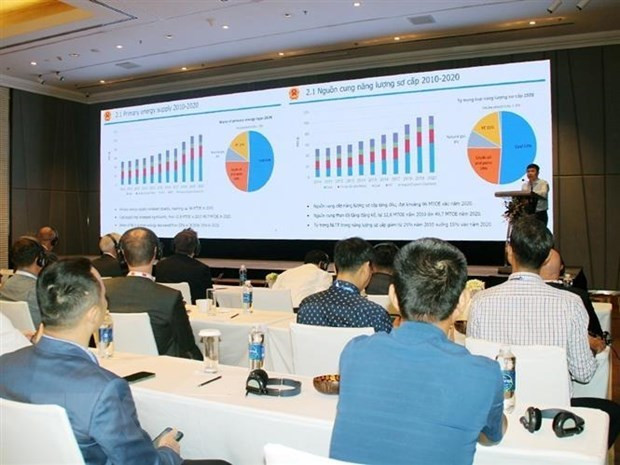According to experts, the participation and collaboration of the private sector will play a vital role in the implementation of the Vietnamese government’s Power Development Plan VIII with priority to be given to the development of renewable energy.
They also said that the plan is an opportunity for business communities both home and abroad to introduce their expertise and competitive advantages, particularly technology. Specifically, Norwegian energy firms boast strengths in offshore wind power, clean hydro, carbon storage, and liquefied natural gas (LNG).
Deputy Ambassador Mette Møglestue said Norway and Vietnam share a determination to become countries with low carbon by 2050. Energy transition is an inevitable process and all countries on the globe must take efforts to achieve this goal.
Ngo Thuy Quynh, Deputy Director General of Oil, Gas and Coal Department said the Vietnamese Government has always paid attention and set goals for energy development to ensure socio-economic development. The sector has seen strong growth, however it still faces challenges on energy supply and transition.
She shared that success transition to clean energy, greenhouse gas emission reduction, climate change response while ensuring energy security requires great efforts from Vietnam and the support of the international community. Therefore, collaboration between Vietnam and Norway in energy transition, updating clean energy technology measures suitable for the Southeast Asian country’s conditions are essential in the energy transition goal.
The business communities of both sides at the event updated information about the industry such as hiking energy prices, energy security and global warming, among others.
The National Power Development Plan VIII is considered a breakthrough in the energy sector as it shows Vietnam’s determination to gradually eliminate coal-fueled and gas-fired power generation and promote renewable energy to achieve the target of net zero emissions by 2050.
Under the plan for the 2021 - 2030 period with a vision to 2050, only the coal-fired power projects listed in the adjusted Plan VII and those currently under construction will be continued, and there will be no new coal-fired power projects after 2030.
Vietnam targets that by 2050, coal will no longer be used for power generation but biomass and ammoniac instead. Coal-fired power plants aged over 40 years will be closed if they are unable to switch to other fuels.
Meanwhile, renewable energy will receive special priority, expected to account for some 70% of all electricity generation by 2050. Rooftop solar power for self-use will also be facilitated to cover 50% of the roofs of office buildings and civil houses.
To date, almost all Southeast Asian nations have announced net zero emissions pledges, including Laos, Malaysian and Vietnam by 2050; Indonesia by 2060; Thailand by 2065.
















